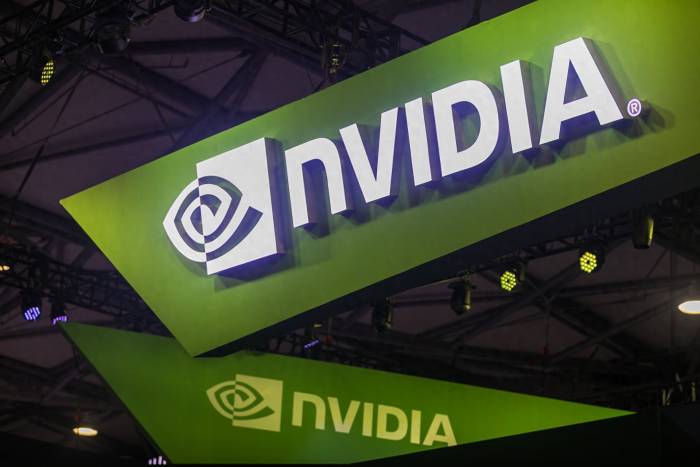In an unexpected turn of events in the aftermath of Nvidia's third-quarter earnings announcement, the financial markets bore witness to a peculiar phenomenon: despite remarkable growth in revenue and profits, Nvidia's stock plummeted. The company revealed a staggering revenue of $35.08 billion, a 94% increase year-on-year, and a net profit of $19.309 billion, marking a staggering 109% rise compared to the previous year, both figures surpassing market expectations. This dramatic performance, instead of being met with excitement and bullish sentiment, triggered a notable sell-off, leaving investors and analysts puzzled.The paradox of Nvidia's situation brings to light critical questions: What is lurking beneath the surface that everyday investors might not grasp? Why does a spectacular earnings report not resonate positively in the current market climate? Wall Street's reaction raises several eyebrows, suggesting fears that transcend mere numbers.After the earnings report was made public, Nvidia's stock faced a drop of over 5% in after-hours trading, eventually closing down nearly 0.76%. The discords within this market reaction suggest a deeper malaise affecting the entire tech sector and the broader indices of the U.S. stock market. Analysts have been burning the midnight oil, trying to decode Wall Street's sentiment, especially after a series of unsettling fluctuations in the stock market in recent weeks.Despite Nvidia's impressive financial data, there are whispers among experts that the results were merely satisfactory rather than stellar. This implies an expectation of an even higher performance that Nvidia has yet to meet, raising the question of whether such elevated expectations have become a millstone around the company's neck.This conundrum ties back to two intertwining factors affecting Nvidia's outlook. Firstly, there’s a sentiment that the earnings report lacked enough punch to provide support not only for Nvidia but also for the larger tech market. Secondly, there are underlying issues regarding Nvidia itself that have raised red flags among analysts, leading to concerns that the company could face unforeseen calamitous events in the near future.Some analysts speculate this behavior could signify an exodus of financial capital from the U.S. stock market, echoing sentiments that institutions like Goldman Sachs are heavily promoting bullish perspectives to stabilize the indices while giving their large investors time to exit gracefully.Prominent investors like Warren Buffett and George Soros have famously pulled much of their capital from the market, anticipating the downturn, while numerous other investors cling to hope, remaining unaware of the risks surrounding their positions.In this climate, Nvidia's earnings report landed with the impact of a feather on a mattress; there was no rebound. Retail investors, initially optimistic, quickly became the casualties of poor market timing, while those with substantial capital made the strategic decision to accelerate their exits.Intriguingly, there are critical elements of Nvidia's financial disclosures that hint at lurking issues. The foundation of its earnings report was heavily reliant on estimated revenues from its next-generation BlackWell chips, which raises questions about their viability and market readiness.Moreover, there is a looming cloud of uncertainty surrounding one of Nvidia's primary customers, Super Micro Computer Inc (SMCI), which has faced pressure from Nasdaq to submit a compliance plan to retain its public listing. With the deadline for compliance having lapsed, and no plan submitted as of November 16, the potential implications for Nvidia are troubling, especially given the extent of revenue that depends on this partnership.If SMCI fails to comply and faces delisting, experts warn it could destabilize not only Nvidia's financial condition but also the broader tech landscape, igniting fears of a cascading effect throughout the sector.Nvidia is not without its own vulnerabilities either; amid an evolving geopolitical landscape, its reliance on rare earth materials, particularly dysprosium, presents significant risks. Dysprosium, noted for its thermal resistance, is critical in manufacturing advanced semiconductors, yet China dominates the global market for this resource, producing nearly 99.9% of it. As the U.S. continues to tighten restrictions on chip exports, Nvidia's access to these essential materials comes under increasing scrutiny.Reports have circulated concerning severe overheating issues with Nvidia's BlackWell chips in high-capacity server racks, implicating supply chain difficulties along with material shortages and potential delays in deliveries. Questions arise about whether Nvidia's challenges stem from a lack of access to dysprosium, forcing them to consider alternative materials that may not perform as required.Although Nvidia has not directly confirmed these reports, they indicated that such engineering challenges are typical during product iteration phases. They assured stakeholders that their engineering teams are actively collaborating with suppliers and clients to resolve any issues that may arise.The implications surrounding Nvidia's situation are intricate and foreboding. If Nvidia stumbles, the ripple effects could profoundly impact the health of the tech sector and the stock market at large. It sets a precarious stage where investors cling desperately to any semblance of stability while navigating through the murky waters of financial uncertainty. The juxtaposition of impressive earnings against market skepticism starkly illustrates the unpredictable nature of financial markets, emphasizing the intricate relationship between corporate performance, investor confidence, and broader economic realities.

Steady Payrolls, Flat Dollar: Can RMB, Yen Strength Last?
Recent data on non-farm employment in the United States has served as a sigh of relief for traders who had been on edge. Released on July 5, this highly anticipated report revealed that the U.S. econo...




























